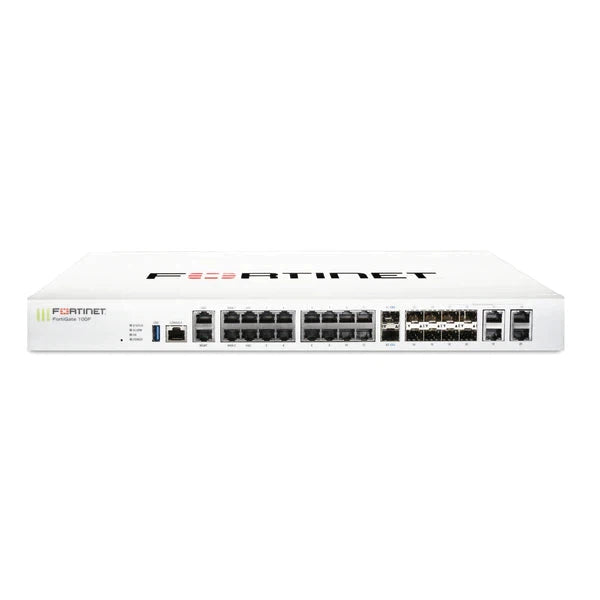How To Choose Hardware Firewalls
A hardware firewall is a physical device that filters through network traffic and prevents certain types from entering or leaving the network boundaries. Some can also be programmed to filter out malicious content.
This makes hardware firewalls an extremely valuable tool to help aid in maintaining network security.
As with every device, it’s important to pick the correct device for your network system as not every person is looking for the same features from their hardware firewalls.
6 things to consider when choosing your hardware firewall are
- Size
- Application control
- Security
- Monitoring and reporting software
- VPN capabilities
- Technical support
The rest of this article will go over each of these factors and why they are important to consider when purchasing your hardware firewalls.
1. Size
The first, and most basic, factor to consider when purchasing a hardware firewall is the size of the device that you need. There are three main sizes that hardware firewalls come in, small office, home office, and enterprise hardware firewalls.
For most small businesses or businesses whose data sectors involve 50 users or less, a home office hardware firewall will be sufficient. The size of the device has little to do with the protection offered so there’s no need to purchase a larger device if your company does not need one.
If the number of users for your hardware firewall goes above 50, you’ll likely need to invest in an enterprise firewall. These are the largest that you can purchase and therefore can provide the most data with protection.
2. Application Control
One important thing to consider when choosing your hardware firewall is how specific it can get with application control.
For example, if your company has a marketing department you will likely want them to be able to access social media with company data. However, you won’t necessarily want every other department to be able to do the same.
That is why it is important to look into how detailed the application control and filtering of the firewall you’re considering purchasing is. That way, you don’t end up accidentally blocking things that you want to leave open for use.
3. Security
The third thing that you should look into when comparing hardware firewalls is the level of security that they provide.
Nowadays, many hardware firewalls offer some form of malware protection. However, they are not all created equally, and typically, the more protection they offer the higher the price.
Some of the features that hardware firewalls can include are antivirus software, spam filtering, and application filtering. Your company may not need all of these, but it’s important to consider the nature of your company to decide which you’d make use of.
If you have or work in a company that has a lot of sensitive information moving through its network at any given time, it will be important to invest in a hardware firewall that is capable of filtering out malicious content.
4. Monitoring and Reporting Software
Another extremely important factor to consider when picking out your network’s new hardware firewalls is the monitoring and reporting software built into them.
Especially if the network is large, the hardware firewall will be sorting through thousands of pieces of information every hour. This also means that it will constantly be blocking and flagging information.
While the hardware firewall may have taken care of the immediate problem by blocking the malicious content, it’s important that whoever is managing the network is still able to access this information and read it easily. That is why it’s so important to purchase a firewall with good monitoring and reporting capabilities.
If the software is not high-quality, it will be difficult for the person managing the network to filter through and pinpoint common threats to the system.
5. VPN Capabilities
If your company is dealing with confidential information, or you simply want additional privacy, you should consider purchasing a hardware firewall with VPN capabilities.
VPN stands for “virtual private network.” In short, a VPN is a way to create a private internet connection in an otherwise public or insecure network. A VPN is able to do this by concealing your identity online as well as encrypting any of your network traffic. This makes it so you cannot be tracked by third parties who may want to steal your data or collect personal information on you for additional purposes.
By choosing hardware firewalls with VPN capabilities you will be taking an extra step to protect your company’s information. This can also be useful if you have employees that work remotely and frequently work with public internet as this can be one of the riskiest places for data theft.
6. Technical Support
One last thing to consider when making your hardware firewall investment is the technical support that the manufacturer offers.
A good manufacturer should provide 24/7 support as well as hardware repairs. That way, when the equipment inevitably malfunctions or begins to break down, the manufacturer will be there to support you and help you troubleshoot so you can get everything working again.
In addition to this, you should ask about their exchange policy. Hardware firewalls, especially the enterprise size, are expensive pieces of equipment and you do not want to have to purchase a new one if the other needs to be sent in for repairs.
The manufacturer should offer an immediate exchange if the equipment stops working. They should also offer to send you a temporary replacement for the equipment should you need to send your hardware firewall back for repairs.
Final Thoughts
Hardware firewalls are an integral part of any well-secured network. They are an invaluable tool that can filter out thousands of pieces of malicious content every day. However, they do have some variations that are important to know.
Before purchasing a hardware firewall it’s important to consider the needs of your company. Then you can make decisions about what size, application control, security, monitoring and reporting software, and VPN capabilities you’ll need.
Of course, no matter which hardware firewall you decide to purchase, you should make sure that the manufacturer has a good exchange, repair, and support policies. That way when you run into an issue you are able to receive adequate support and a new device if needed.







